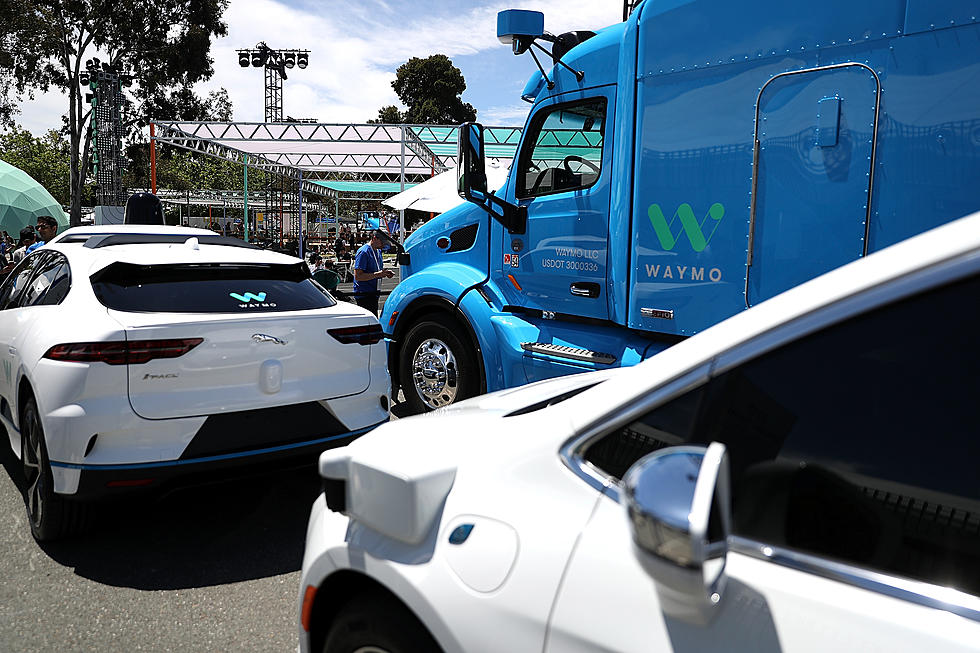
Would You Feel Safer Sharing the Killeen, Texas Roads with Driverless Semis?
Sharing the Texas highways with 18-wheelers is already challenging enough. Now we may need to deal with those semis with nobody behind the wheel.

Do You Want to Share the Road with Robots?
We've all had to deal with a 18-wheeler that doesn't seem to stay in his own lane on I-35 from time to time, but now we may have to trust that a driverless 18-wheeler is a better answer? Well, it may be happening sooner than you think, and it looks like our Southern Texas highways have become the testing ground.
The Lights are On But Nobody's Home
Autonomous vehicles are rising in popularity. Tesla may be the most popular driverless car on the market right now, but there are other companies that are working to make the self-driving vehicle safer and more reliable.
#EndTheStreak
According to Waymo, there were 36,096 road deaths in 2019, and 94% of those deaths were caused by human error.
Self-driving technology uses radar, laser scanners, cameras, and GPS antennas that communicate with piloting software meant to make it a safe experience.
Trucking partner development manager at Waymo, Pierre-François Le Faou, says, "Each time we drive a mile or a kilometer in real life, we re-simulate a thousand more times on the computer by changing hundreds of parameters."
Why the Lone Star State?
According to a report from APF, Texas passed laws in 2018 that gave driverless cars the same status as conventional vehicles.
The director at the Center for Autonomous Vehicles and Sensor Systems at Texas A&M University, Srikanth Saripalli, says, "You need insurance and you need to follow the rules of the road, but other than that Texas does not impose any other regulations."
Drive Friendly - The Texas Way
Texas highways are already some of the most deadly in the U.S. According to TxDOT, Texas roadways have seen road deaths everyday for the last 21 years with more than 75,000 preventable deaths.
Advocates for driverless technology say self driving vehicles can be safer in the long run and prevent roadway deaths.
Help Wanted
Like so many other industries affected by the pandemic, truck drivers are also in short supply. Many drivers no longer want to make the cross country trips that keep them away for weeks at a time and are opting to stay home with their families instead.
CEO and co-founder of Embark Technology, Alex Rodrigues, says driverless trucks are a great way to combat those shortages, but says drivers would still be needed to drive those trucks from transfer points to their final destinations.
Still, a 2018 study by Steve Viscelli, a sociologist at the University of California, Berkeley. found that moving to self-driving semis would eliminate about 294,000 trucking jobs across the country.
Driverless Trucks Would Save $$
Of course, autonomous trucking would save the industry a lot of money and speed up the delivery of goods from point A to point B. According to Aurora, it takes a person three days to drive from Los Angeles to Dallas, but a driverless semi can make that same trip in 24 hours.
Embark says it would drop the cost from $1.76 per-mile, to $0.96 per-mile.
Do You Feel Safer Yet?
There are lots of pros and cons for driverless trucking, but do you feel any safer with these big rigs on the roads? How will you feel when they start rolling through Central Texas?
Put These 7 Things in Your Vehicle and Stay Safe This Winter in Central Texas
10 "Outside the Box" Ideas for Valentine's day
Top 20 Restaurants Central Texans Wish Would Come to Temple
More From KUSJ-FM









